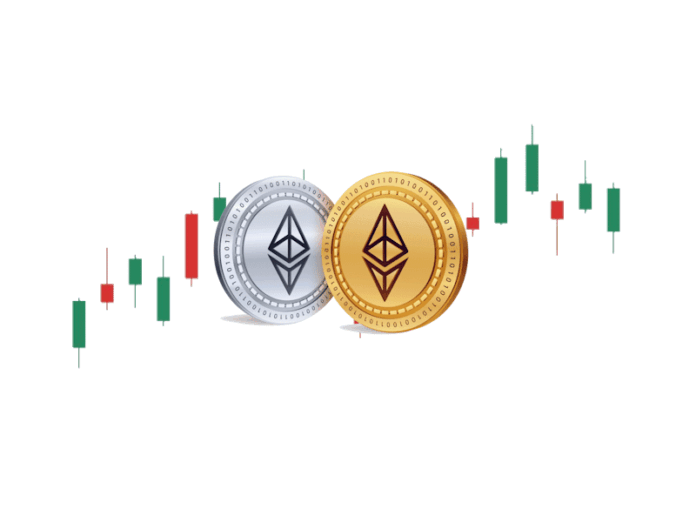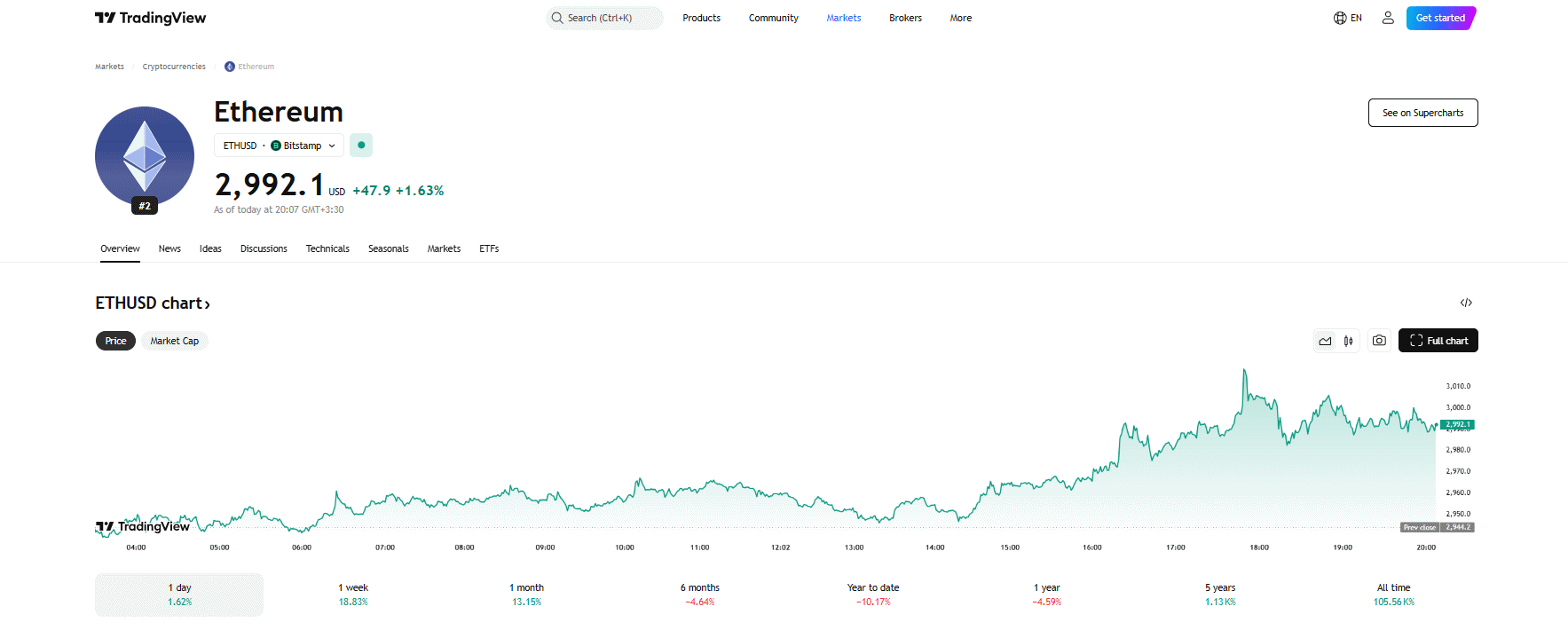Ethereum (ETH) is a decentralized blockchain platform that enables the execution of smart contracts and the development of decentralized applications (dApps). This cryptocurrency was launched in 2015 by Vitalik Buterin and his team. Ethereum plays a key role in the growth of DeFi (Decentralized Finance), NFTs, and the Web3 ecosystem.
🔵History of Ethereum
- 2013: Initial whitepaper published by Vitalik Buterin
- 2014: Raised $18 million through an Initial Coin Offering (ICO)
- 2015: Official launch of Ethereum mainnet
- 2016: DAO hack and subsequent fork into Ethereum and Ethereum Classic
- 2022: Complete transition from PoW to PoS during the Merge upgrade
🔵Technical Features of Ethereum
- Proof of Stake (PoS): Since 2022, Ethereum has used PoS instead of traditional mining, significantly reducing energy consumption.
- Smart Contract Support: Ethereum was the first blockchain to fully support smart contracts, enabling a wide range of decentralized services.
- Ethereum Virtual Machine (EVM): Allows decentralized execution of custom code.
- High Scalability: Layer 2 solutions like Optimism and Arbitrum are built on Ethereum to improve speed and reduce costs.
- Unlimited Supply: Unlike Bitcoin, ETH has no fixed supply, but mechanisms like EIP-1559 help control inflation through fee burning.
🔵Use Cases of Ethereum
Ethereum serves as a powerful platform for deploying smart contracts across a wide range of sectors, including finance, insurance, voting systems, supply chain management, and blockchain-based gaming.
The platform allows developers to build decentralized applications (dApps), enabling the creation of projects like decentralized exchanges (DEXs), lending protocols, and NFT marketplaces.
Other key use cases of Ethereum include participating in network security through staking, contributing to Web3 projects that aim to build a decentralized internet, and creating custom tokens. Thanks to its high flexibility and open infrastructure, Ethereum has become the foundation for countless innovations in the crypto space.
🔵Advantages of Ethereum
- Strong developer support and a highly active ecosystem
- Wide range of use cases and on-chain projects
- Reduced energy usage after transition to PoS
- Continuous innovation and technical upgrades
🔵Disadvantages of Ethereum
- High transaction fees during network congestion (though improving)
- Technical complexity for beginners
- Strong competition from newer blockchains like Solana and Avalanche
- Scalability challenges at the base layer
🔵Ethereum Price Overview
Ethereum was initially launched in 2015 with a price of around $0.70. Over the years, its value has surged significantly due to the expansion of the DeFi and NFT ecosystems. The highest official price recorded for Ethereum was approximately $4,800 in November 2021. By 2025, ETH has surpassed the $4,000 mark on some exchanges.
Real-time Ethereum price chart on CoinMarketCap
🔵Ethereum: Spot Purchase vs. Derivatives Trading
You can either buy Ethereum directly (spot market) and store it in a wallet, or trade derivatives such as CFDs and Forex contracts to speculate on price movements.
A spot purchase gives you full ownership of ETH, which can be used for staking, payments, or long-term holding. In contrast, derivative trading allows you to profit or lose from price changes without owning the actual asset.
Long-term holders and ecosystem participants often prefer real ownership, while short-term traders may choose derivatives for access to leverage and volatility.
Real-time ETH/USD price chart on TradingView
🔵Conclusion
Ethereum (ETH) is one of the most innovative projects in the blockchain world. Not only has it maintained its position as the second-largest cryptocurrency, but it has also laid the groundwork for decentralized finance, NFTs, and Web3 infrastructure. The successful shift to Proof of Stake, a dynamic ecosystem, and diverse use cases make it a key asset in the future of digital economies.
Despite facing strong competitors and technical hurdles, Ethereum remains a dominant force in the crypto market, continuously evolving through upgrades and attracting global developer interest.
If you’re interested in ETH, our experts can provide you with the right guidance to access the best trading conditions.
🔵Frequently Asked Questions (FAQ)
Is Ethereum still mined?
No, mining was discontinued after the network switched to Proof of Stake in 2022.
Is Ethereum legal?
In most countries, yes, but legal status may vary by jurisdiction.
Is Ethereum a good investment?
Many analysts consider Ethereum a promising investment due to its utility, active ecosystem, and long-term growth potential.





